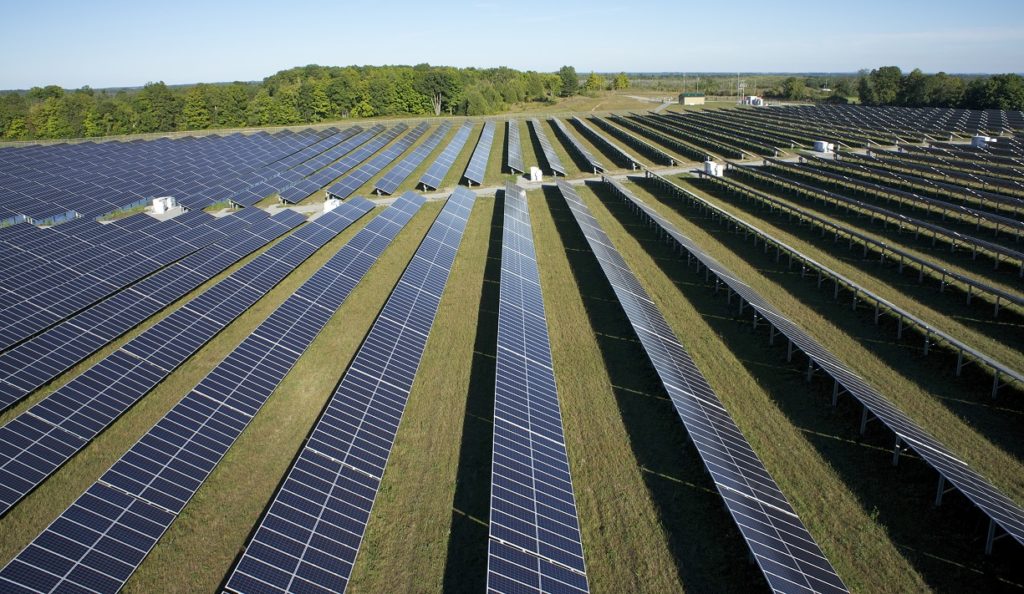
Canada will introduce tax credit incentives and invest in developing and manufacturing solar PV, energy storage and other renewable energy technologies in an Inflation Reduction Act-style scheme.
The Government of Canada has released its 2023 budget, which positions growing the clean economy as one of its core priorities, alongside healthcare and ‘affordability’. Under the budget, the government has confirmed the 30% refundable tax credit on investments made by taxable entities into clean energy technologies like solar, battery storage and wind. This builds on the Fall Economic Statement 2022 plan, which was covered in our sister site EnergyStorage.news.
Try Premium for just $1
- Full premium access for the first month at only $1
- Converts to an annual rate after 30 days unless cancelled
- Cancel anytime during the trial period
Premium Benefits
- Expert industry analysis and interviews
- Digital access to PV Tech Power journal
- Exclusive event discounts
Or get the full Premium subscription right away
Or continue reading this article for free
A 15% refundable tax credit for investments into clean electricity generation and energy storage by non-taxable entities – like indigenous communities and municipally-owned utilities – was announced as well.
It also proposes to introduce a 30% refundable tax credit for clean technology manufacturing, applying to investments into machinery and equipment used for manufacturing processes as well as extracting, processing and recycling critical materials to clean supply chains.
As part of the budget announcement the Canada Infrastructure Bank will invest up to CA$20 billion (US$14.7 billion) into clean energy growth and infrastructure projects, in the form of two separate CA$10 billion (US$7.3 billion) facilities through its Clean Power priority area and its Green Infrastructure priority area. The investments will come from existing resources, the government said.
In its 2021 budget the government announced a 50% income tax cut for zero-emission technology manufacturers, which this new 2023 budget will extend for a further three years and expand to include nuclear equipment producers as well.
The budget also includes a 13-year plan to invest CA$3 billion (US$2.2 billion) in supporting clean energy projects through infrastructure and Smart Grid programme development and research into offshore wind capabilities.
The Canadian Renewable Energy Association (CanREA) welcomed the 2023 budget announcement as a boon for the industry’s competitiveness: “The choice to pursue investment tax credits for clean technology, like wind, solar, storage and green hydrogen, will allow Canada to take a competitive lead in accelerating the decarbonisation of the energy sector,” said Evan Wilson, senior director of policy and government affairs at CanREA.
In its official statement, CanREA said that “With the support of these new investment tax credits, CanREA expects the deployment of new wind solar and storage to accelerate significantly.”
CEO of Canadian Renewable energy company Westbridge Renewables, Stefano Romanin, said in a statement sent to PV Tech: “With Canada’s power usage expected to double by 2050, it is imperative to invest in clean technology that will help us meet that demand in a sustainable way. These initiatives will not only further enable companies directly working in the sector, but also help attract the nearly estimated CA$150 billion in investment required to help Canada meet its goal of achieving net-zero emissions by 2050.”
The US’ landmark IRA, which set aside huge credits for energy transition investment, has seen others like the EU – and now Canada – trying to follow suit and remain competitive. Details of the scheme are yet to be clarified.
More to follow…






